European Union Ambassador Vassilis Maragos visited Armenia’s Syunik region within the framework of the Resilient Syunik Team Europe initiative. He was accompanied by the ambassadors of the Czech Republic, Germany, Latvia, Sweden, and Switzerland, as well as the deputy heads of mission of France and the Netherlands, alongside heads of European development agencies and media representatives.
The visit aimed to showcase how the EU, its member states, and partner institutions are working together to promote inclusive and sustainable development in the Syunik region.
The Resilient Syunik Team Europe initiative is the joint undertaking of the EU, the European Investment Bank, the European Bank for Reconstruction and Development, Austria, the Czech Republic, Estonia, Finland, France, Germany, Lithuania, the Netherlands, Poland, Sweden and Switzerland, joining as an external partner. The key goal of the initiative is to promote the sustainable socio-economic development of Syunik.
Balak village: A new model for sustainable agriculture
In the morning, the delegation travelled to the village of Balak in Sisian, where the Balak Seed Producers and Pasture Users Association cooperative was established under the ECOserve programme, funded by the German government. The cooperative will also benefit from support through the Forest Restoration and Climate Change in Armenia programme, funded by the Swiss government.
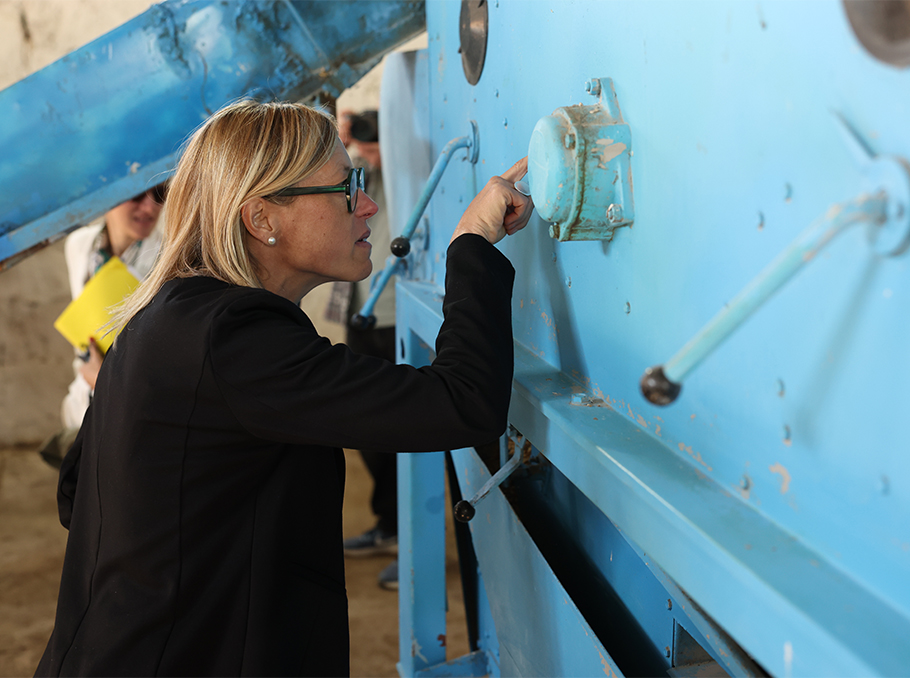
Photo: EU Delegation to Armenia
As a demonstration site for sustainable fodder production, Balak focuses on improving natural grasslands, reusing previously uncultivated arable land, and promoting responsible pasture management. This initiative enables local farmers to earn additional income while mitigating environmental risks. By 2025, the cooperative had developed 113 hectares of arable land. The example of Balak stands as compelling evidence of how, with international support, new agricultural practices can emerge, combining traditional knowledge with modern, sustainable approaches.
Sisian Agrarian College: Turning knowledge into skills
The next stop of the visit was the Sisian bramch of the National Agrarian University of Armenia – one of the centres for agricultural education in the region. The college applies a dual learning model that combines theoretical instruction with hands-on practical experience.
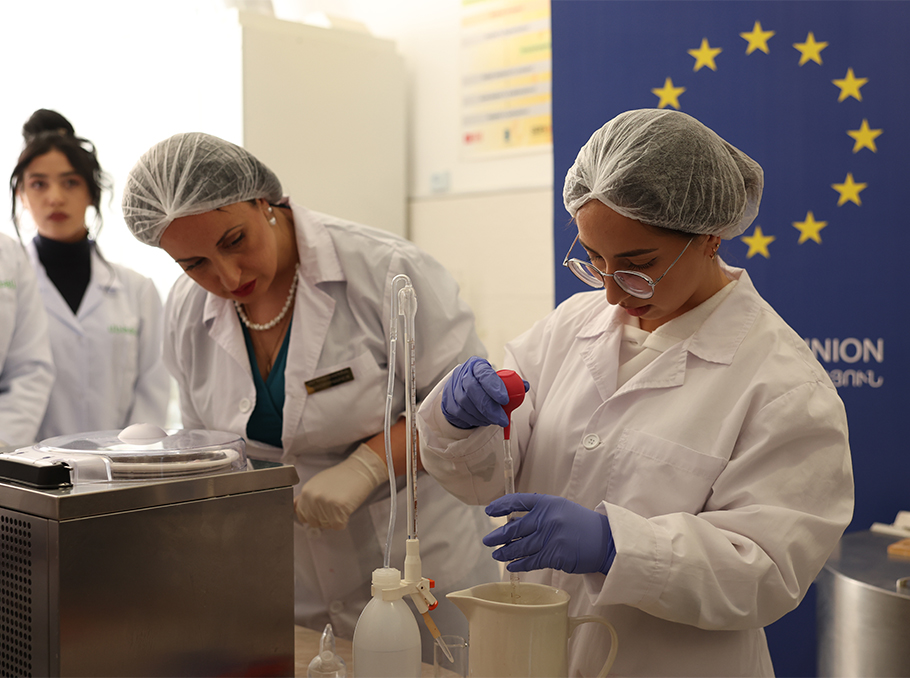
Photo: EU Delegation to Armenia
With financial support from Switzerland, Germany, and Austria, the college has been equipped with modern equipment. Students complete internships on local farms and at processing enterprises, gaining practical skills that are in high demand in today’s labour market.
Swiss Ambassador to Armenia, Andrea Barbara Baumann, who took part in the visit, emphasized that “vocational education should not only take place in classrooms, but also be enriched through real-life experience. The youth of Syunik should become the driving force behind the development of their communities.”
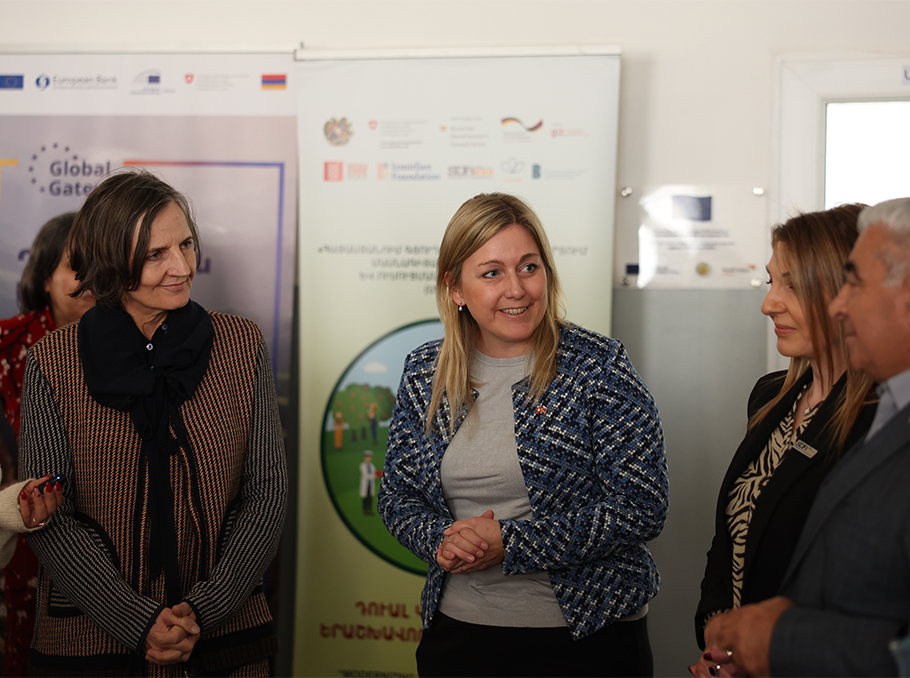
Photo: EU Delegation to Armenia
“The projects implemented in Sisian are a vivid example of how Switzerland, within the framework of the Team Europe initiative, invests its experience in vocational education and agriculture. We have extensive expertise in applied education models, where students combine theoretical knowledge with practical training in real-world conditions. This approach enables them to integrate into the labour market more quickly and contribute to community development.
We will continue to work with international partners, local authorities, NGOs, and the private sector to ensure that such programmes form the foundation for policy reforms and sustainable long-term growth. Switzerland remains committed to standing with the Armenian people, working together to build a more inclusive and resilient future,” the ambassador added.
Goris: A centre for dignified aging and solidarity
The Elderly Care Home was officially opened in Goris through the initiative of the Winnet Goris Development Foundation. It was established with funding from the European Union, and with the support of the German Embassy, the Goris Municipality, and several international and local partners, including the Amaryan Charitable Foundation, Secours Populaire Français, the UNHCR Office in Armenia, and ACTED.
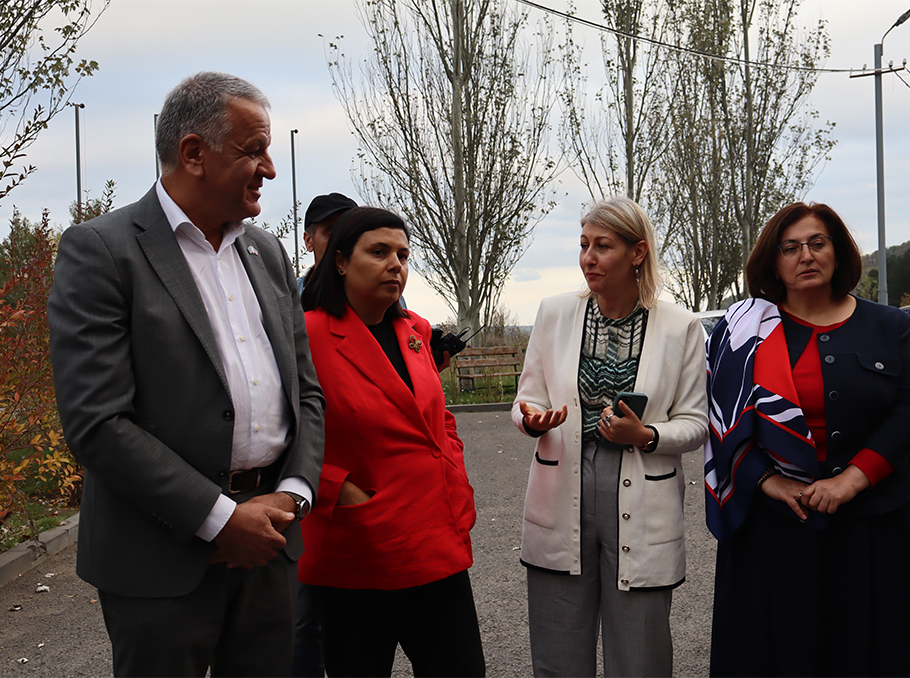
Photo: EU Delegation to Armenia
According to Ruzanna Torozyan, Executive Director of the Foundation, the centre is designed to serve as a daytime activity and care hub where elderly people can share experiences, spend time together, and access various social and recreational services.
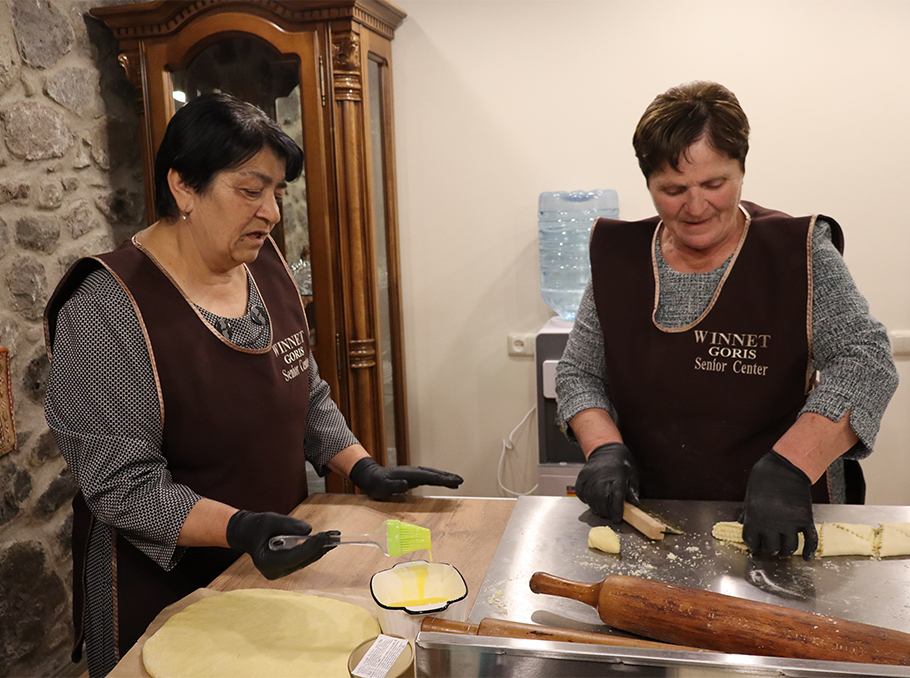
Photo: EU Delegation to Armenia
“The centre was created to ensure dignified aging for both local residents and displaced elderly people. Here, they can take part in handicraft and cooking clubs, cultural and entertainment events, and receive different types of support services. This is not just a place – it is a symbol of our care and love,” said Torozyan.
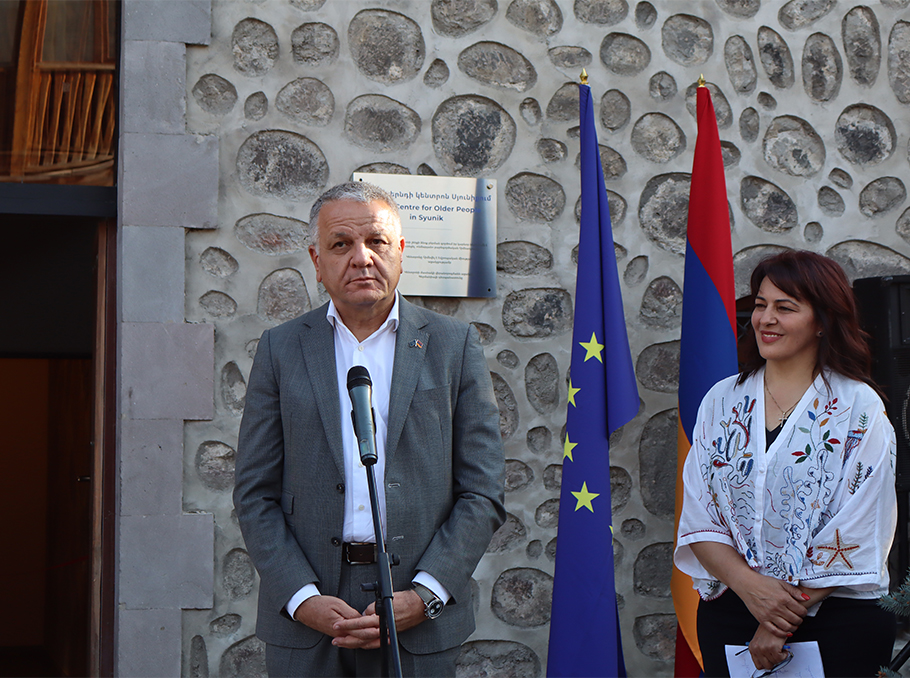
Photo: EU Delegation to Armenia
EU Ambassador Vassilis Maragos, speaking at the opening ceremony, emphasized the importance of collaboration behind the initiative: “It is truly inspiring to see how a small but deeply human dream has become reality. The European Union has always been and will remain a reliable partner of Armenia on the path toward peace and progress. Our initiatives in Syunik are a testament to the solidarity of the people of Europe and their trust in Armenia.”
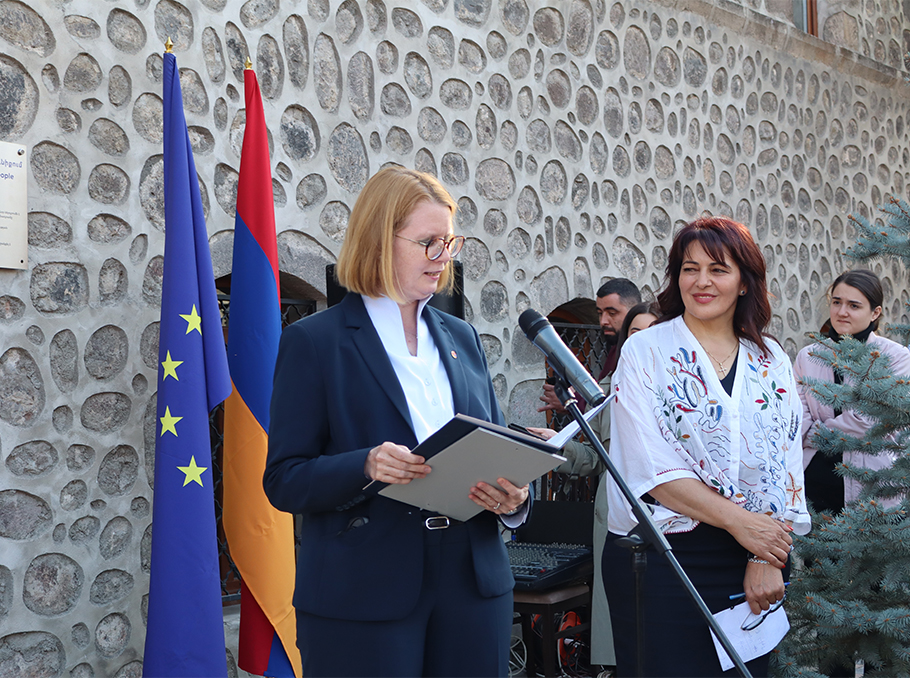
Photo: EU Delegation to Armenia
German Ambassador to Armenia Claudia Busch said:
“It is very moving to see how our programmes bring real changes to people’s lives. We support initiatives that ensure a dignified life for all. This centre in Goris is particularly close to my heart. I hope it becomes a place where people come together, develop their talents and ideas, engage in creative work, and find solutions to their needs, including health-related ones. This is a vivid example of how the EU, Germany, and our Armenian partners are working hand in hand to create an environment where older people feel valued and cared for.”
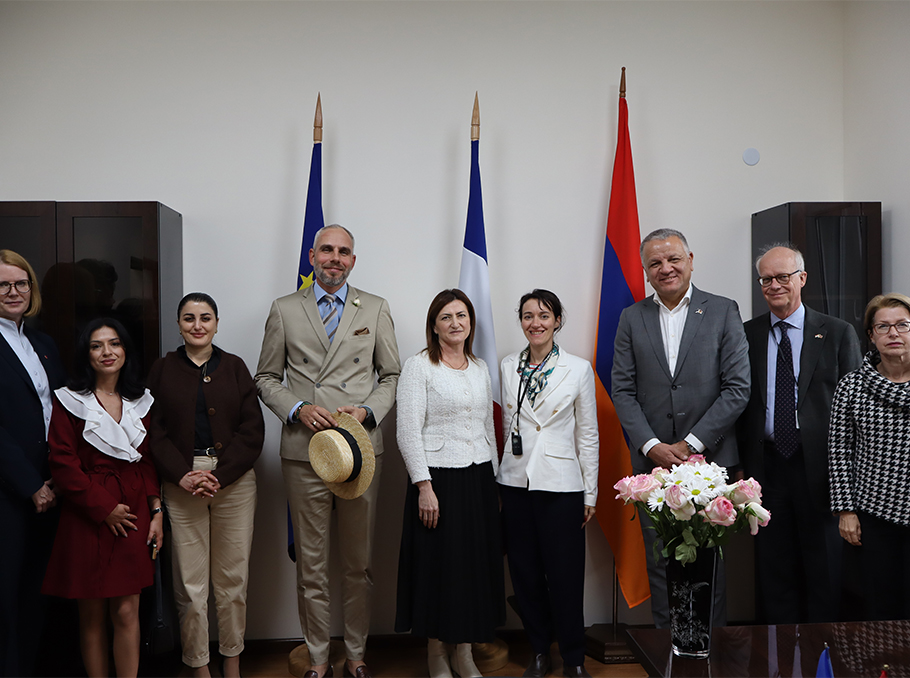
Photo: EU Delegation to Armenia
Honorary Consulate of France: Europe’s new address in Goris
The next stop of the visit was the Honorary Consulate of France in Goris, which officially opened in June 2025. Honorary Consul Carmen Apunts presented the activities of the Consulate, emphasizing its role as a bridge of cooperation between France and the Syunik region.
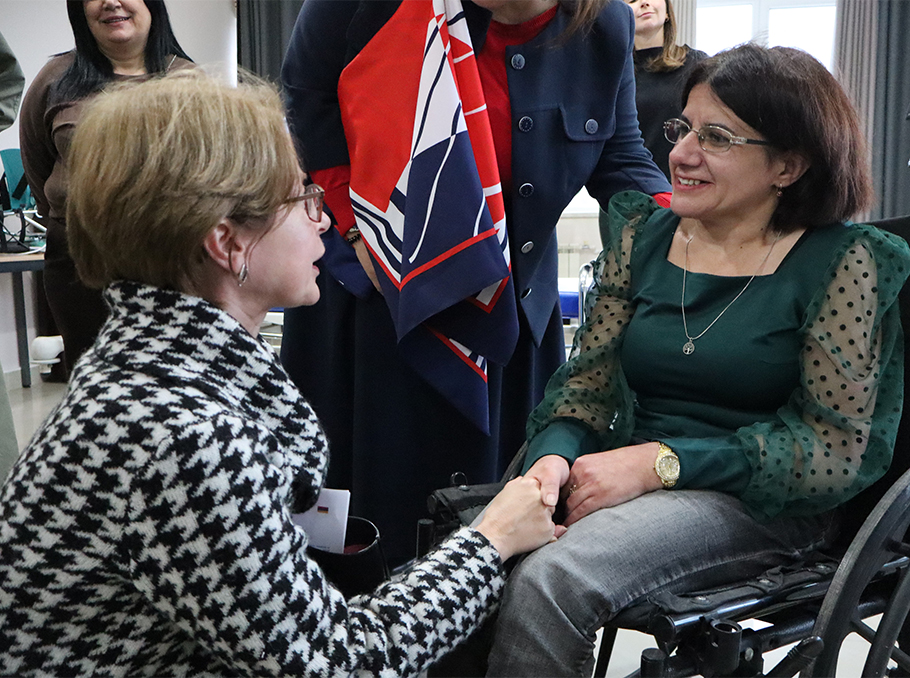
Photo: EU Delegation to Armenia
During the meeting, Deputy Ambassador of France to Armenia Julie Fort highlighted the special significance of the Consulate’s opening:
“The establishment of an honorary consulate in Goris is a powerful symbol of our support – not only in the context of current developments, but also for historical reasons. We have special historical ties with Goris, and in many ways, it can be described as a very ‘French’ city. For decades, since the Soviet period, schoolchildren and students here have studied the French language, and this tradition continues to this day,” said the Deputy Ambassador.
Rehabilitation centre and social inclusion services
In Goris, the ambassadors also visited the French-Armenian rehabilitation centre “Santé Arménie,” which is the only one of its kind in the region. Since its opening in 2021, the centre has provided free neuro-orthopaedic and psychological services to more than 460 patients.
Residents from various communities in the Goris, Tegh, and Tatev consolidated municipalities reach the centre using the first adapted social taxi service in the region.
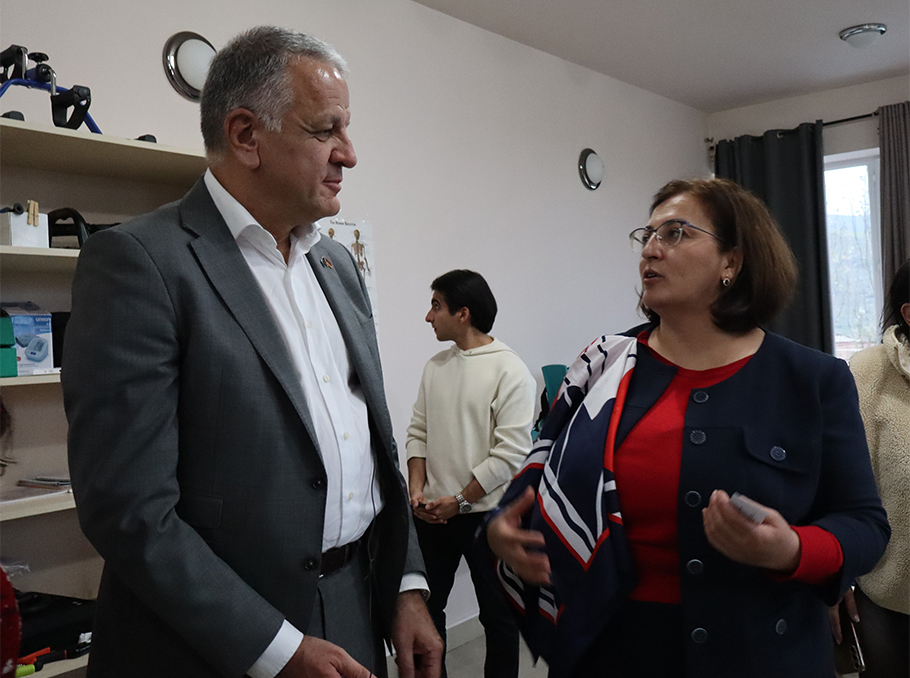
Photo: EU Delegation to Armenia
“For years, getting around was a challenge for me. Most taxi drivers refused to take me from home to other places. Thanks to the social taxi, this is no longer a problem. Most importantly, I can now get to the rehabilitation centre on time and receive the care I need without worry,” said Kristine Khachunts.
The social taxi operates under the EU-funded “Partnership for Syunik” programme, implemented by People in Need, Armenian Caritas, and the Winnet Goris Foundation.
“Within the framework of the project, we have worked with 20 NGOs and provided at least €730,000 in grants for the provision of social services. Six new types of social services are now operating in the region, five of which have already been certified. These include social taxis, home care for children and the elderly, temporary housing support, reintegration services for former convicts, and accessibility improvements for people with disabilities. All these services were piloted in Syunik with financial support from the European Union under the Resilient Syunik Team Europe initiative and are now established on a sustainable basis to continue in the coming years. The most important outcome is the strengthened local capacity that allows community structures to continue delivering these services independently after the project’s completion,” noted Varduhi Dadunts in her speech.
Shushan Mirumyan, coordinator of the French-Armenian Rehabilitation Centre in Goris, emphasized the symbolic importance of the social taxi for community inclusion:
“The social taxi is not just a means of transportation for our patients – it represents equality and inclusion. It shows people that they are not alone,” she said.
Community infrastructure and new opportunities
On the second day of the visit, the delegation travelled to Shinuhayr village in the Tatev community, where the community’s irrigation system was restored within the framework of the “Recovery, Resilience and Development for Syunik” (R2D Syunik) project, funded by the European Union and the Austrian Development Agency. Thanks to the new system, more than 3,000 residents now have reliable water access, and around 50 hectares of agricultural land are being irrigated – fostering agricultural development and strengthening food security for local farmers.
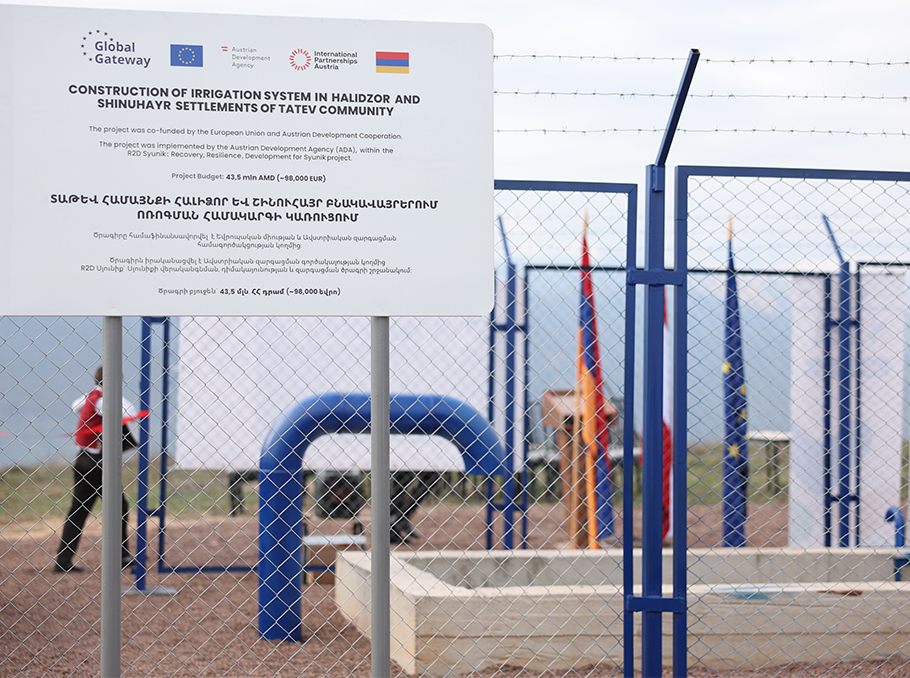
Photo: EU Delegation to Armenia
The construction of the irrigation system is one of 19 small-scale infrastructure projects being implemented across the enlarged communities of Syunik. Each project aims to improve community living standards and promote sustainable local development.
On the same day, the delegation visited Kapan, where, under the EU’s “Mayors for Economic Growth Facility” (M4EG) initiative, long-term cooperation with the Kapan Municipality has focused on diversifying the local economy and enhancing community well-being.
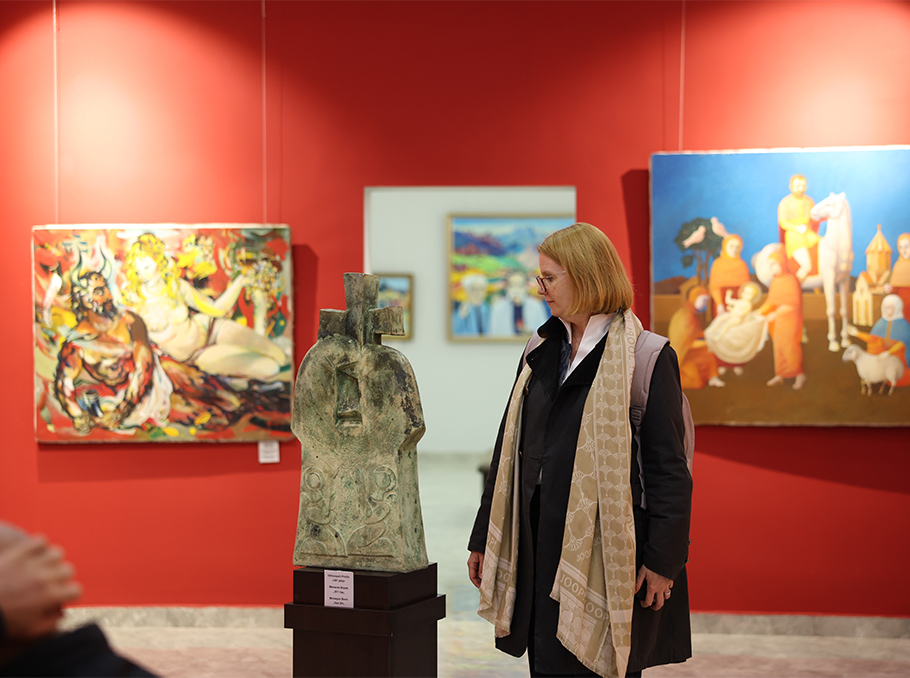
Photo: EU Delegation to Armenia
To achieve this vision, the municipality adopted a portfolio approach. The city’s Youth Creative Centre has been re-equipped with woodworking, embroidery, and carpet-weaving workshops, helping young people acquire new skills and stimulating the growth of creative industries as a potential source of entrepreneurship and local economic activity.
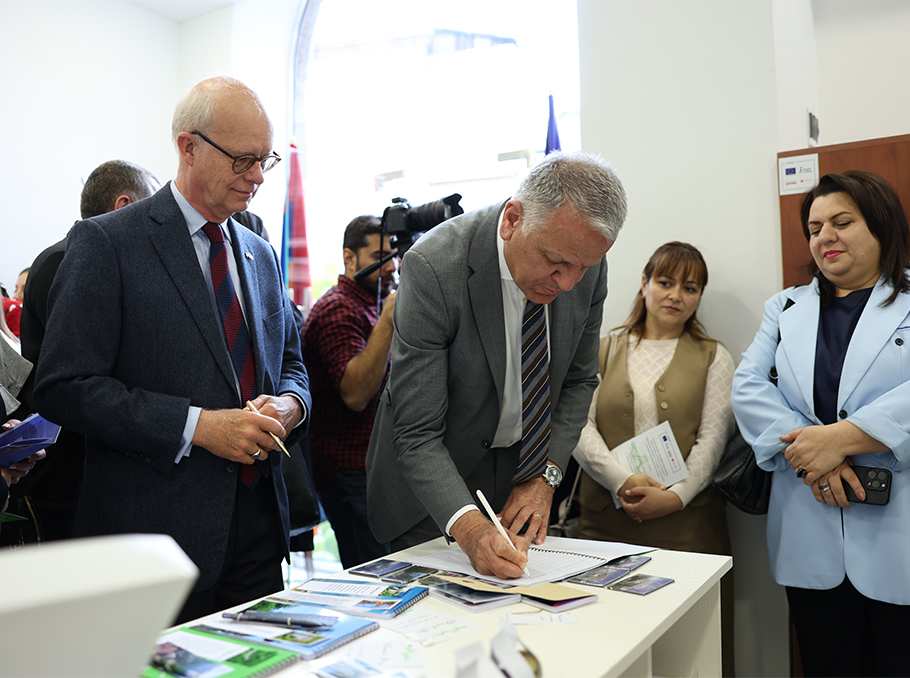
Photo: EU Delegation to Armenia
The ambassadors also visited an EU-funded social enterprise – a printing house operating within the “Partnership for Syunik” programme – which serves as a new model of social service. The enterprise supports employment and reintegration opportunities for vulnerable groups, particularly former convicts.
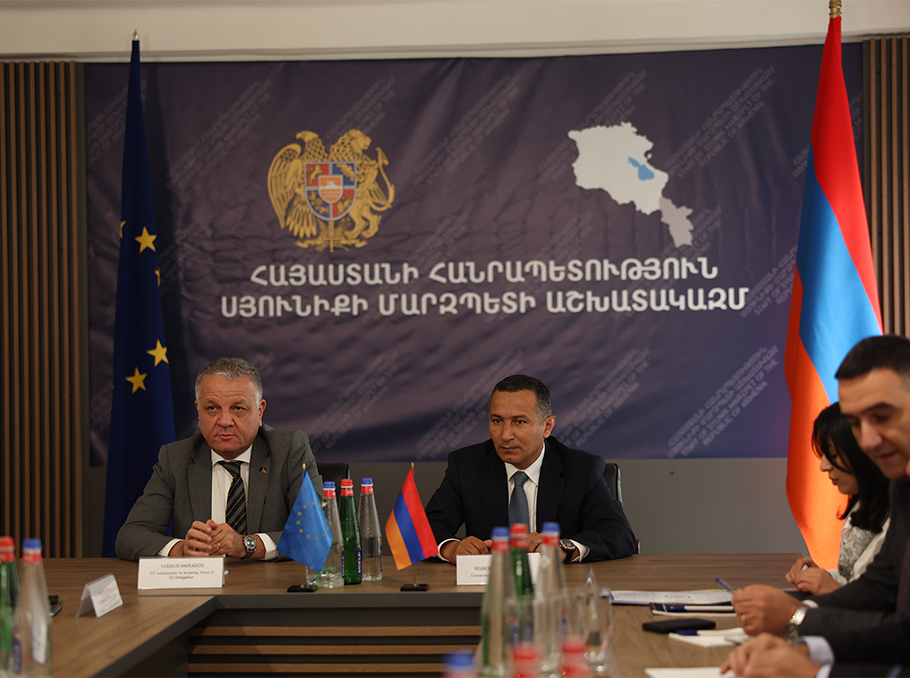
Photo: EU Delegation to Armenia
Concluding the visit, the ambassadors met with Syunik Governor Robert Ghukasyan in Kapan to discuss on-going and future cooperation under the Resilient Syunik Team Europe initiative. The discussions focused on regional development priorities, community support mechanisms, and the continuity of investment programmes implemented by the EU, EU member states, and Switzerland.
The EU – Armenia’s reliable partner
Speaking about the Resilient Syunik initiative, EU Ambassador Vassilis Maragos emphasized:
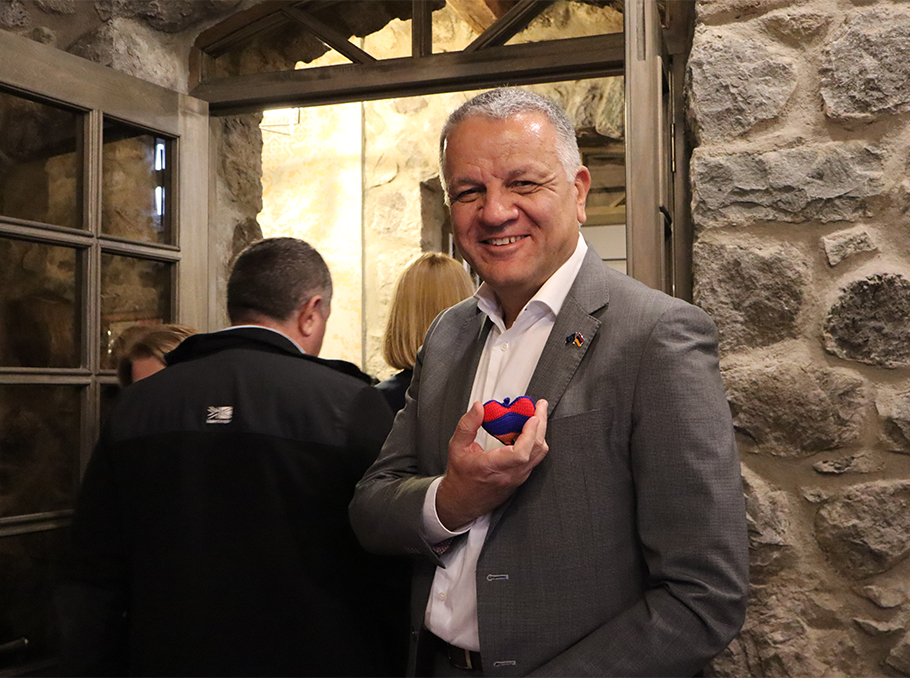
Photo: EU Delegation to Armenia
“We are not here just to provide assistance. We are here to stand shoulder to shoulder with you for a more independent and sovereign Armenia. Team Europe is ready to use all its instruments to support the communities of Syunik. We believe that peace and development must go hand in hand, and this region is one of the best examples of that.”
According to him, more than €200 million in investments are planned under the Resilient Syunik initiative. “We want the people of this region to develop their skills, become more competitive and resilient,” he noted.
The two-day visit was not only an opportunity to review on-going projects, but also a renewed expression of mutual trust between the European Union and Armenia. The Resilient Syunik Team Europe initiative has become a living example of how shared resources, experience, and values can come together for the benefit of people, communities, and a peaceful, sustainable future for the region.
Anahit Baghdasaryan
Photos by Mediamax and the EU Delegation to Armenia
The Resilient Syunik Team Europe” initiative is the joint undertaking of the European Union, the European Investment Bank, the European Bank for Reconstruction and Development, EU Member states - Austria, Czechia, Estonia, Finland, France, Germany, Lithuania, the Netherlands, Poland, Sweden, and Switzerland also joining as an external partner. The initiative aims to contribute to the sustainable socioeconomic development of the Syunik region.
This article was published with the financial support of the European Union. Its content is the sole responsibility of Mediamax and does not necessarily reflect the views of the European Union.







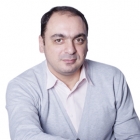
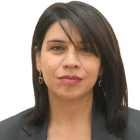
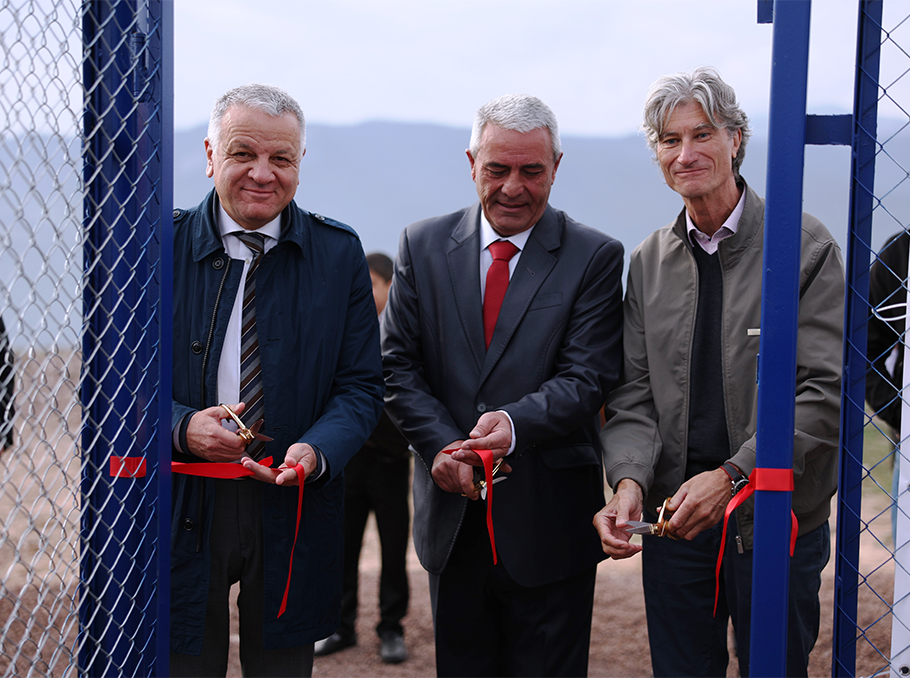

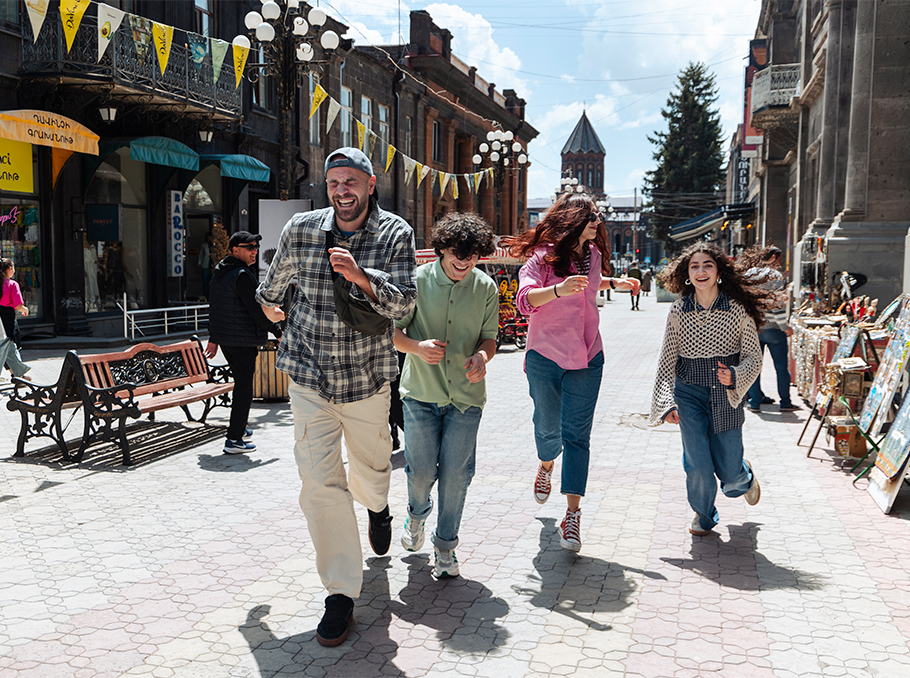
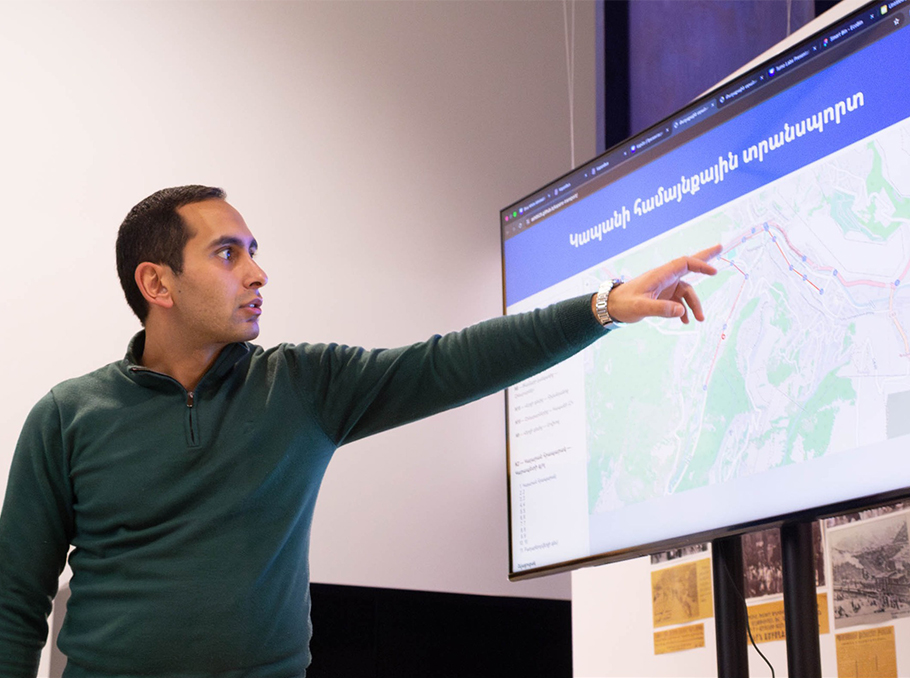
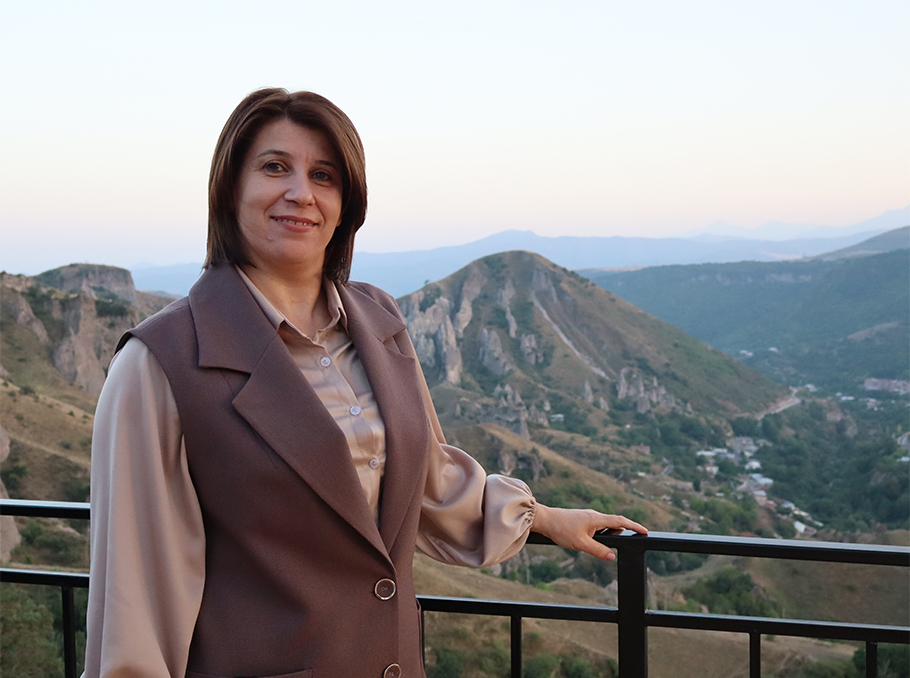
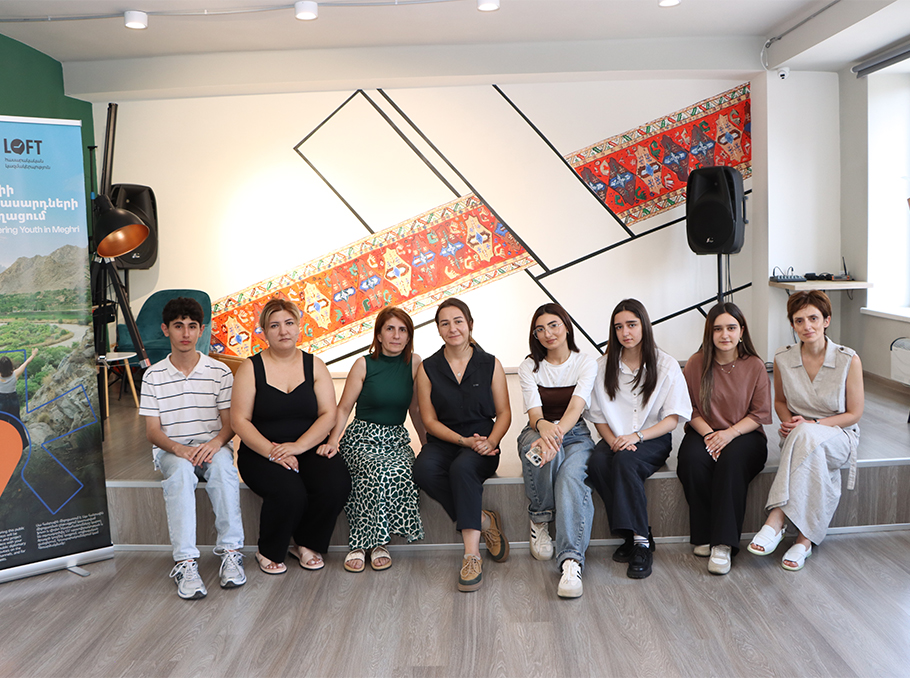







Comments
Dear visitors, You can place your opinion on the material using your Facebook account. Please, be polite and follow our simple rules: you are not allowed to make off - topic comments, place advertisements, use abusive and filthy language. The editorial staff reserves the right to moderate and delete comments in case of breach of the rules.